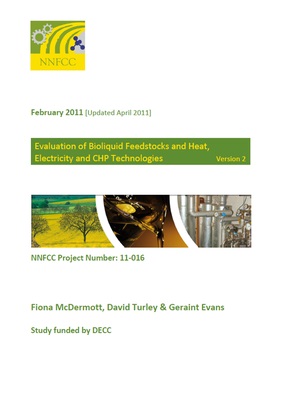
Highlights
- Bioliquid feedstocks and their likely availability in 2020 were analysed
- Heat, power and CHP technologies suited to use of bioliquids were assessed
- Market opportunities and possible levels of heat and power generation from bioliquids in 2020 were examined
- Advantages to developing bioliquids and the barriers to deployment discussed
Reasons
to buy
- To understand market opportunities of bioliquids
- To assess potential availability of bio-feedstocks
- To inform developers of the suitability of bioliquid technologies
- For policy makers planning to meet targets
Number
of pages: 58
Accessibility: This item is available to NNFCC business subscribers or through individual purchase
Summary
There is increasing interest in
use of bioliquids for heat and electricity generation, as well as CHP
generation. The technology is particularly well suited to small scale, urban
and community owned energy schemes. However bioliquids include feedstocks which
are often seen as controversial from a general public perspective, such as palm
or soy oil. In addition, bioliquids have competing alternative uses including
use as transport fuels and as feedstocks in other industries (e.g. soap
manufacturing).
A good understanding of the
various technologies and feedstock availabilities as well as the potential
trade-offs is central to informing policy in this area. Therefore the NNFCC
were commissioned to investigate:
- All potential bioliquid feedstocks and their likely availability in 2020 (accounting for costs and competing demand levels from transport/other industries in 2020) – including vegetable oils, tallow, used cooking oil, tall oil, biodiesel, and pyrolysis oil
- Heat, power and CHP technologies suited to use of bioliquids
- Market opportunities and possible levels of heat and power generation from bioliquids in 2020
The report examines the potential of bioliquid feedstock, technologies and
markets to meet the Renewable Energy Strategy 2020 targets for electricity and
heat. It also outlines the advantages to developing bioliquids and the barriers
to deployment.
To read more please become a business subscribers or fill in the form below for individual purchase.
You may also be interested in:
Talk to the experts
For business solutions call NNFCC on +44 (0)1904 435 182 or email
enquiries@nnfcc.co.uk